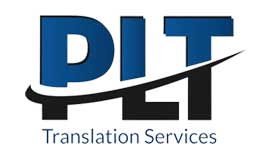Drafting a will is a crucial step in estate planning, ensuring that your assets are distributed according to your wishes after your passing. Whether you’re a Muslim or a non-Muslim residing in the UAE, it’s essential to follow proper legal procedures when drafting your will to ensure its validity and enforceability. Here’s a detailed guide on drafting, notarizing, and translating a will in the UAE, along with how Petra Legal Translation can assist in this process:
Drafting the Will:
- Identify the Testator: Begin by clearly identifying yourself as the testator, along with your full name, nationality, and other relevant personal details.
- Declare Testamentary Capacity: State that you have the legal capacity to make a will and that you are of sound mind and free from any undue influence.
- Appoint an Executor: Nominate an executor or personal representative who will be responsible for administering your estate and carrying out the instructions outlined in the will.
- Specify Beneficiaries: Clearly identify the beneficiaries who will inherit your assets, specifying their full names, relationship to you, and the portion of the estate they will receive.
- Detail Asset Distribution: Provide specific instructions for the distribution of your assets, including real estate, bank accounts, investments, personal belongings, and any other valuable possessions.
- Address Special Circumstances: If you have minor children, dependents with special needs, or specific wishes regarding charitable donations, ensure these are addressed in the will.
- Include Residuary Clause: Include a residuary clause to cover any assets not specifically mentioned in the will, ensuring they are distributed according to your overall intentions.
- Sign and Date the Will: Sign the will in the presence of two witnesses who are not beneficiaries and have them sign as witnesses. This is a legal requirement in the UAE.
Notarization:
After drafting the will, it should be notarized by a licensed notary public to validate its authenticity and legality. Notarization involves the acknowledgment of signatures on the document by the notary, along with the affixation of an official seal. This step adds credibility to the will and ensures its acceptance by relevant authorities and beneficiaries.
Legal Translation:
If the will is in a language that stakeholders do not understand, it should be translated into a language they comprehend. Petra Legal Translation offers professional legal translation services, ensuring accurate and legally compliant translations of the will. Certified translators proficient in both the original language and the target language ensure that the translated document maintains its legal validity and effectiveness.
How Petra Legal Translation Can Help:
Petra Legal Translation specializes in providing high-quality legal translation services for various documents, including wills for individuals in the UAE. With a team of experienced translators and legal experts, Petra ensures accurate translation of the will while adhering to legal standards and requirements. By entrusting the translation to Petra, individuals can ensure that their will is accurately understood and recognized by all relevant parties, facilitating seamless estate planning and legal compliance.




